Varicose Vein Surgery
What are Varicose Veins?
Varicose veins usually appear on the legs just under the surface of the skin. The veins in your leg feature a number of valves designed to help the flow of blood up to your heart. Varicose veins occur when these valves stop working properly and pump blood in the wrong direction.
There are cases where people are born with conditions that cause them to have veins with walls that are abnormally thin and weak. This may cause them to develop varicose veins later on in life, even if their veins are under normal pressure. The condition is relatively common and usually harmless, rarely requiring treatment.
Varicose vein surgery is available at One Hatfield Hospital in Hertfordshire.
Cause of Varicose Veins
There are a number of reasons that increase the likelihood of developing varicose veins. They are as follows:
- Gender – females are twice as likely to develop them
- Genetics – they commonly run in the family
- Age – older people are more likely to develop this condition
- Pregnancy
- A lifestyle that involves standing – blood does not flow as easily when standing for long periods of time
- Being overweight – putting extra pressure on your veins makes it harder to send blood back to the heart
Symptoms of Varicose Veins
Varicose veins usually appear on the legs and feet. The veins can be seen just under the surface of the skin and are often blue/dark purple and bumpy, swollen or twisted in appearance.
Aside from their appearance, there are other symptoms to look out for such as:
- Painful, heavy and uncomfortable legs
- Swollen feet and ankles
- Burning or aching in your legs
- Muscle cramps, mostly at night
- Dry, prickly skin over the affected vein.
Diagnosis
Varicose veins are usually diagnosed by their appearance. You will be asked by your doctor to describe the pain and go into detail about situations that make them worse.
Your doctor may suggest that you have an ultrasound scan called a Duplex ultrasound. This type of scan uses sound waves to provide an image of the veins inside your leg and the flow of blood through them. It allows your doctor to review your veins more clearly and find out more about the position and severity of your condition.
Treatment
Before considering surgery your doctor may recommend non-surgical solutions. In milder cases, it may be possible to treat the symptoms of varicose veins using support stockings. Some patients may also benefit from foam Sclerotherapy; a procedure in which chemicals are injected to treat the veins.
If your doctor thinks that your varicose veins require further treatment, the route they choose will depend on the results from the Duplex ultrasound, your general health, along with the size and severity of your veins. Your doctor will discuss your options with you so that you are enable to make the decision that is right for you.
Surgical Options
There are a range of surgical options for treating varicose veins; the following being the most common:
Endovenous Laser Ablation
An Endovenous Ablation (EVA) is a surgical procedure to alleviate the symptoms of varicose veins. After undergoing surgery your symptoms should improve dramatically.
The EVA procedure takes roughly 45 minutes to perform. The procedure can be conducted under a general, local, or spinal anaesthetic and your surgeon will recommend the correct anaesthetic option for you.
Radiofrequency Ablation (RFA) and Laser Ablation
There are 2 forms of EVA procedures – a laser ablation and a radiofrequency ablation. The laser ablation technique involves inserting a catheter (tube) into the saphenous vein. A laser fibre is then passed through the catheter until it reaches the point at which the saphenous and deep veins meet. Laser energy will then be used to cause the saphenous vein to close.
Patients who undergo the laser EVA procedure should be able to return home the same day. Your doctor may recommend using support stockings for recovery. Unless otherwise informed, you should be able to return to normal activities immediately following the operation.
Foam Sclerotherapy
If endothermal treatment is unsuitable for you, your doctor may advise you have foam Sclerotherapy. This treatment involves injecting a chemical foam into your varicose veins. This then scars the veins causing them to close up, although you may need more than one injection to block each vein. Similar to the endothermal procedures, it is less invasive than surgery and can be done under local anaesthetic.
Phlebectomy – Also known as Microphlebectomy, Ambulatory Phlebectomy, or Stab Avulsion
Phlebectomy is a relatively new technique performed under general or local anaesthetic to remove varicose veins. During this treatment, 1 or 2 minor incisions are made in the skin, after which the doctor will insert a small light under your skin called an endoscopic transilliminator; this will enable them to see clearly as to which veins need to be removed. The affected veins are cut before removal and then removed using a suction device.
This procedure is fast and effective and only leaves small scars with no skin staining or other potential complications.
Post-Operative Recovery
Upon discharge from the hospital, you do not need to avoid any particular activities and can carry on as normal. However, you should avoid strenuous exercise for the first few days and gradually build up over the course of 1-2 weeks. It is important that you do not exert yourself, but rather be guided by how well you feel. Regular exercise will aid your recovery, but again, avoid high-impact exercises such as running. Swimming is an ideal leisure activity to help assist you in returning to your normal activities as quickly as possible. Before beginning a course of exercise, it is recommended that you consult your medical team for advice.
You can return to work when you feel well enough to do so, although it is advisable to take between 2-5 days off work, depending on the type of work you do. If your job involves prolonged standing or driving, you may need to take longer off work.
Most patients who undergo further surgery make a full recovery; however, it is possible that the varicose veins will return.
Risks and Complications
Varicose veins can get worse over time, generally over a period of years. Serious complications are rare but can include:
- Thrombophlebitis – swelling in the vein caused by a blood clot
- Bleeding – the superficial veins (just under the skin) may bleed if you cut or bump your leg.
- Venous ulcers – small cuts or sores on your skin can take longer to heal if you suffer from varicose veins. Sometimes they don’t heal at all and end up forming an ulcer.
- Deep vein thrombosis (DVT) – pain and swelling in the leg, can lead to serious complications such as pulmonary embolism. Seek medical help straight away.
There is no scientifically proven way to prevent veins but following an active, healthy lifestyle can be helpful; avoid standing or sitting still for too long, maintain a healthy weight and take part in regular exercise.
Need Help?
At One Healthcare we can book you in to see a specialist Vascular surgeon, usually within 48 hours, for an initial consultation. Varicose vein surgery is available at One Hatfield Hospital in Hertfordshire, ideally located to treat patients living in Welwyn, Harpenden, St Albans, Stevenage, and all nearby areas.
You can use your private medical insurance or pay for your Varicose Vein Surgery treatment. We offer competitive, fixed price packages. If you are using your health insurance, please contact your insurer first for approval and let them know you’d like to be treated at One Hatfield Hospital.
| Treatment | Guide Price from |
|---|---|
| Varicose Vein Treatment (Surgical – one leg) | £3,315 |
| Varicose Vein Treatment (Surgical – both legs) | £5,621 |
Why One Hatfield
- Modern purpose-built hospital opened in December 2017
- 0% and low finance options**
- Fast access to diagnostics including MRI, X-ray and Ultrasound
- Private, spacious, en-suite rooms
- Specialist physiotherapy and nursing teams
- Little or no waiting time
- ‘Ultra clean air’ theatres
- Freshly prepared food
- Calm, dignified experience
**Terms and conditions apply
Contact us and find out more
If you are based in and around Hertfordshire, St Albans, Stevenage, Watford, Barnet, North London, Welwyn or Bedfordshire and would like to visit the One Hatfield Hospital please click here.
General Surgery Pricing Guide at One Hatfield Hospital
This is a list of guide prices for some of common General Surgery treatments and procedures.
| Treatment | Guide Price |
|---|---|
| Hernia Repair - Groin (Inguinal) - Open surgery | £4,500 |
| Gall Bladder Removal (Laparoscopic Cholecystectomy) | £7,500 |
| Haemorrhoidectomy | £3,100 |




 One Ashford
One Ashford One Hatfield
One Hatfield